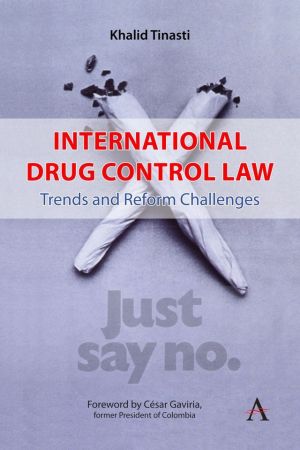
Analyzes the international drug control regime, examining its legal foundations, emerging tensions, and the existing calls for reform in response to evolving challenges like synthetic drugs, cannabis legalization, and new trafficking methods.
The international drug control regime, anchored in three international conventions (1961, 1971, and 1988), bans non-medical drug production and use while ensuring access for medical purposes. Despite near-universal ratification and political commitments focusing on demand and supply reduction as well as judicial cooperation, the illegal drug market has expanded significantly. Over the past decade, drug use rose by 20%, problematic use by 45%, and seizures of drugs like cocaine and amphetamines by more than 40%. These trends expose the regime’s inability to fulfil its objectives, alongside escalating challenges like drug-related violence, overdose crises, and human rights abuses. This book critically examines the international drug control framework, analyzing its legal instruments, historical context, and implementation mechanisms. It explores emerging tensions, such as the limited access to pain medicines, the legalization of non-medical cannabis in some regions, and synthetic drug crises affecting public health and law enforcement. By addressing these issues, the book sheds light on how countries navigate the conflicts between their international obligations and pressing domestic challenges, particularly in adapting to new trafficking modes.
Building on these analyses, the book discusses whether the current regime is fit for purpose or requires reform. It explores potential pathways for change and evaluates the risks and benefits of maintaining the status quo and of reforming. Ultimately, the work aims to inform policymakers, students, and communities about the complexities of drug control laws and the existing paths to modernization to address contemporary challenges effectively.